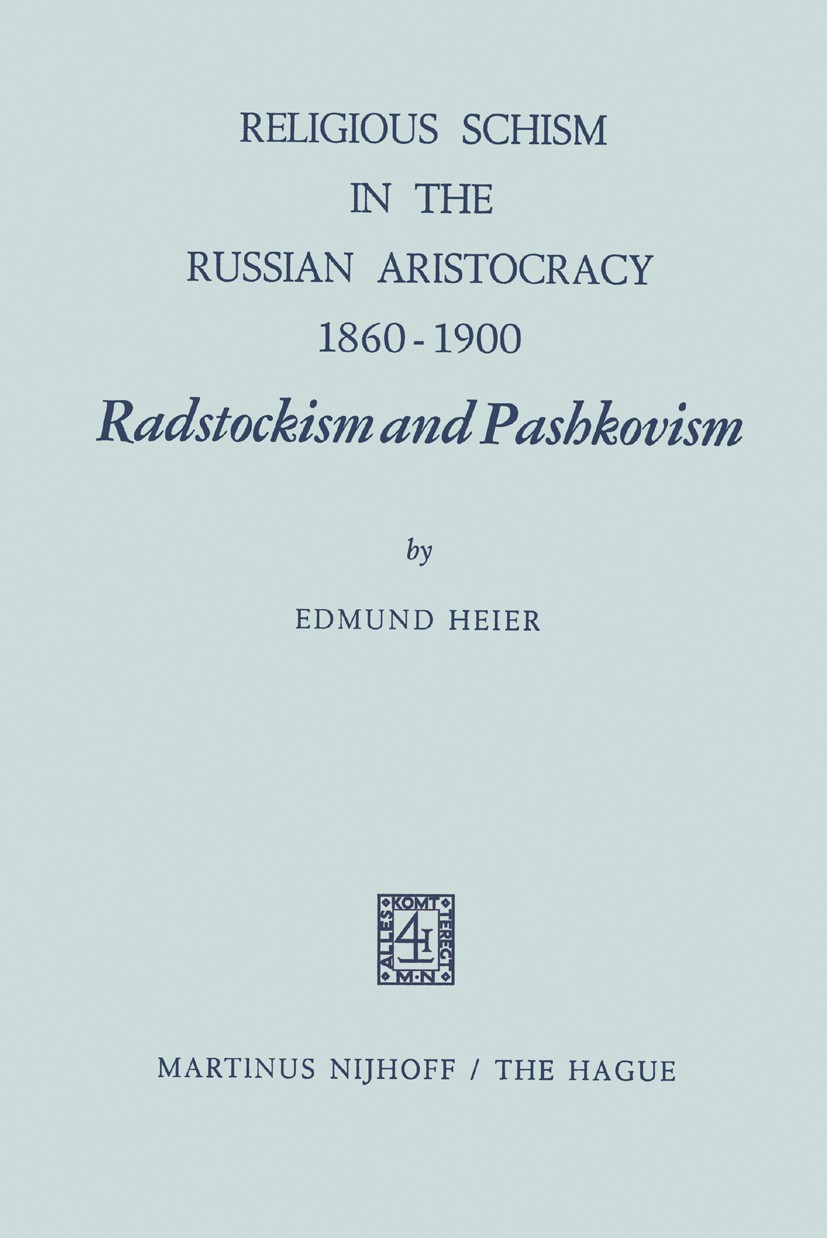| 書目名稱 | Religious Schism in the Russian Aristocracy 1860–1900 Radstockism and Pashkovism | | 副標(biāo)題 | Radstockism and Pash | | 編輯 | Edmund Heier | | 視頻video | http://file.papertrans.cn/827/826751/826751.mp4 | | 圖書封面 |  | | 描述 | My research in the intellectual and spiritual sphere of nineteenth- century Russia revealed that ever since the penetration of the fashion- able anti-ecclesiastical views of the Encyclopedists into Russia, the aristocrats had grown indifferent to religion. The spiritual vacuum created as a result of such conditions could not last, however, for a prolonged period of time; least of all during the decades following the r860‘s when Russia‘s moral, socio-political, and religious problems were most acute. The subsequent quest for salvation and the general religious inquiry among Russia‘s elite, as they were known in the West, manifested itself chiefly in the writings of such profound religious and philosophical thinkers as V. Solov‘ev, K. Leont‘ev, N. Fedorov, Dos- toevskij, and Tolstoj. They constitute, however, only a fraction of those tormented by the longing for religious truth and guidance in an age of transition and uncertainty. There existed among Russia‘s aristocracy in the second half of the nineteenth century a widespread socio-religious movement known as Radstockism or Pashkovism, which aimed for a religious renovation and with it a transformation of Russia on an ethical and m | | 出版日期 | Book 1970 | | 關(guān)鍵詞 | Christianity; English literature; Russia; church; dance; exile; integration; literature; transformation; trut | | 版次 | 1 | | doi | https://doi.org/10.1007/978-94-010-3228-5 | | isbn_softcover | 978-94-010-3230-8 | | isbn_ebook | 978-94-010-3228-5 | | copyright | Martinus Nijhoff, The Hague, Netherlands 1970 |
The information of publication is updating

|
|
 |Archiver|手機(jī)版|小黑屋|
派博傳思國際
( 京公網(wǎng)安備110108008328)
GMT+8, 2025-10-7 12:54
|Archiver|手機(jī)版|小黑屋|
派博傳思國際
( 京公網(wǎng)安備110108008328)
GMT+8, 2025-10-7 12:54


